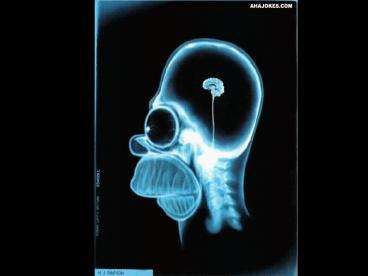Radiation Safety Induction for Radiology Registrars - PowerPoint PPT Presentation
1 / 31
Title:
Radiation Safety Induction for Radiology Registrars
Description:
Do not adjust your set Radiation Safety Induction for Radiology Registrars John Saunderson Radiation Protection Adviser CHH ext 76-1329 Ionising radiations x-rays ... – PowerPoint PPT presentation
Number of Views:274
Avg rating:3.0/5.0
Title: Radiation Safety Induction for Radiology Registrars
1
Do not adjust your set
2
www.hullrad.org.uk
3
Radiation Safety Induction for Radiology
Registrars
- John Saunderson
- Radiation Protection Adviser
- CHH ext 76-1329
4
Ionising / Non-ionising
- Ionising radiations
- x-rays
- gamma rays (?-rays)
- beta particles (?)
- electron beams
- Not ionising radiations
- lasers
- ultraviolet (UV)
- infrared (IR)
- ultrasound
- MRI
5
Wilhelm Roentgen
- Discovered X-rays on 8th November 1895 .
6
Colles fracture 1896 .
Frau Roentgens hand, 1895
7
Mihran Kassabian (1870-1910)
8
Dose Reduction Precautions
- X-ray tubes shielded
- Collimation
- Aluminium filters
- Weekly exposure limits introduced
9
(No Transcript)
10
Radiation Effects
- Acute radiation syndrome
- Including vomiting, diarrhea, reduction in the
number of blood cells, bleeding, epilation (hair
loss), temporary sterility in males, and lens
opacity (clouding )
- Late 1940s Dr Takuso Yamawaki noted an increase
in leukaemia - 20 of radiation cancers were leukaemia (normal
incidence 4) - Incidence peaked at 6-8 years
- Solid cancers excess seen from 10 years onwards.
11
- Early X-ray pioneers
- Acute effects
- Precautions introduced
- Atomic bomb survivors
- Acute effects similar in nature to pioneers
- Some increased cancer risk
- But what about radiology today?
12
(No Transcript)
13
Cancer Risk
- 1 in 20,000 risk of fatal cancer per millisievert
- Chest x-ray 0.02mSv ? 1 in a million risk
- Abdomen x-ray 1mSv ? 1 in 20,000
- Barium meal 3mSv ? 1 in 7,000
- CT abdomen 10mSv ? 1 in 2,000
- (Typical interventional radiologist dose lt 3
mSv/y) - Small risk compared to natural cancer risk
- Why worry?
14
700 CANCER CASES CAUSED BY X-RAYS
30 January 2004
- X-RAYS used in everyday detection of diseases and
broken bones are responsible for about 700 cases
of cancer a year, according to the most detailed
study to date. - The research showed that 0.6 per cent of the
124,000 patients found to have cancer each year
can attribute the disease to X-ray exposure.
Diagnostic X-rays, which are used in conventional
radiography and imaging techniques such as CT
scans, are the largest man-made source of
radiation exposure to the general population. - Although such X-rays provide great benefits, it
is generally accepted that their use is
associated with very small increases in cancer
risk.
Average X-ray examination dose 0.5mSv ? 1 in
40,000 risk UK Radiology 41.5 million X-rays
per year
15
Basic Principals of Radiation Protection
- Justification
- Benefit gt risk
- Optimisation
- Doses as low as reasonably achievable
- Limitation
- Absolute legal limits for staff and public
- Reference levels as guidance for patients.
16
Regulations
- Ionising Radiations Regulations 1999 (IRR99)
- Local rules, radiation protection supervisors
- Ionising Radiation (Medical Exposures)
Regulations 2000 (IRMER2000) - Referrers, practitioners, operators
- Justification optimisation
- Medicines (Administration of Radioactive
Substances) Regs 1978 (ARSAC) - Nuclear medicine
17
Organising radiation safety
- Controlled Areas
- Local Rules
- Radiation Protection Supervisor
- Radiation Protection Adviser
- Radiographer.
18
IRMERIonising Radiation (Medical Exposures)
Regulations 2000
- Referrers
- allowed to request medical exposure
- Trust decides who can e.g. GP, consultant, etc.
- Practitioners
- Justifies X-ray - decides there is net benefit
- Trust decides who can e.g. radiologist
- Operator
- Performs practical aspects
- Trust decides who can e.g. radiographer,
technician .
19
Medicines (Administration of Radioactive
Substances) Regs 1978 (MARS / ARSAC)
- No person shall administer to a human being
(otherwise than to himself) any radioactive
medicinal product unless he is doctor or dentist
holding a certificate issued by the Health
Minister for the purposes of section 60 of the
Act in respect of radioactive medicinal products
(hereinafter referred to as a certificate) or a
person acting in accordance with the directions
of such a doctor or dentist. .
20
Radiation in hospitals
- Radioactive substances
- nuclear medicine
- pathology
- radiotherapy
- X-ray sources
- Radiology
- Radiotherapy
- Pathology .
21
(No Transcript)
22
Leakage
23
Basic Principles
- Time
- Distance
- Shielding
24
Distance
- Double distance 1/4 dose
- Triple distance 1/9th dose.
25
Shielding
26
Shielding
27
Typical Transmission through Shielding (90 kV)
- 0.25 mm lead rubber apron ? 8.5
- 0.35 mm lead rubber apron ? 5
- 2 x 0.25 mm apron ? 2.5
- 2 x 0.35 mm apron ? 1.0
- Double brick wall ? 0.003
- Plasterboard stud wall ? 32
- Solid wooden 1 door ? 81
- Code 3 lead (1.3 mm) ? 0.1.
28
Lead Apron Storage
- Always return to hanger
- Do not
- fold
- dump on floor and run trolleys over the top of
them!!! - X-ray will check annually
- But if visibly damaged, ask X-ray to check them.
29
(No Transcript)
30
Physics lectures
- Tuesday or Thursdays
- 2pm start (please be prompt)
- Check the venue
31
The End































